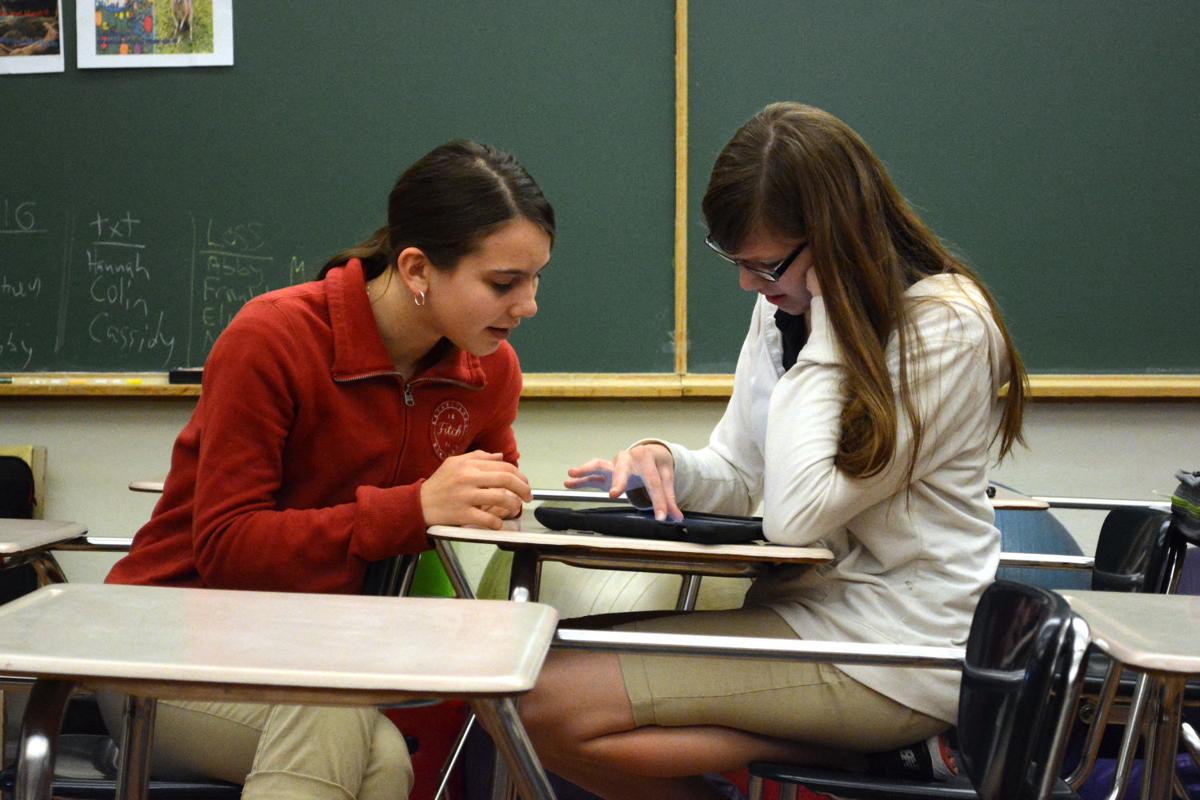Passing Prop. 123 is the only sure way to get more money into Arizona classrooms.
Public education in Arizona is in crisis, the predictable result of nearly a decade of to-the-bone budget cuts and purposeful divestment by the state Legislature.
The existence of Prop. 123 speaks volumes about how desperate Arizona schools are to stanch the budget bleeding. The plan would settle a lengthy lawsuit over the Legislature’s decision to stop giving schools funding increases to cover inflation — a requirement that voters approved in 2000.
The courts have instructed the Legislature to pay schools $300 million immediately, which Republican majority members have refused to do despite pressure from business groups, parents, educators, civic leaders and students. A judge has yet to decide whether schools are owed an additional $1 billion.
Prop. 123 would distribute about $3 billion to Arizona public district and charter schools over the next decade. Most of it would come from the state land trust, which is earmarked to help fund public education anyway — it’s not new money for schools.
There is much to dislike in Prop. 123 — it takes more money from the public education land trust, and it includes triggers that would stop funding education increases under certain economic conditions.
But one of the main objections we’ve heard from opponents is the sense that approving Prop. 123 lets the Republican legislators who’ve starved schools, against the express direction of the voters, off the hook. They point out that it guarantees extra money for 10 years, while what voters approved back in 2000 adds dollars in perpetuity.
Defeating Prop. 123 will not hurt those negligent lawmakers or force them to do right by Arizona kids. If it fails the only people harmed will be children and educators.
In fact, rejecting Prop. 123 would give anti-education lawmakers a victory. They will claim that voters have spoken and said Arizona schools do not need more funding. It would be the wrong message to take from a defeat — Prop. 123 opponents agree schools need more money, but don’t think this is the way to do it — but that won’t matter.
Schools’ needs today are real. Students can’t wait years for the lawsuit to further wind its way through courts. Districts cannot find qualified teachers to hire, and when they do, low salaries and overloaded working conditions push many of them out of the profession within a few years. Median teacher pay in Tucson is about $39,000, compared with $56,000 nationwide, according to the University of Arizona MAP Dashboard.
Many schools don’t have enough or up-to-date textbooks, technology that works or classroom supplies. “Right now Prop. 123 is the only way” to get more school funding quickly, middle school teacher John Fife told us.
While Prop. 123 doesn’t specify that the incoming money be spent on teachers or in the classroom, schools and districts in Pima County have said they’d use it to boost teacher pay.
Opponents of Prop. 123 argue that this lawsuit is the only leverage public education supporters have, and that to give that up is folly. They might be true, but it’s a naive position. These elected officials have had years to do the right thing and have refused.
Opponents also say lawmakers should use the budget surplus to pay schools what they’re owed, and to invest more in education. They’re correct — lawmakers should use the surplus to pay that debt, but they’re not going to.
This will not change until voters elect different, and better, legislators. The way “safe” districts are drawn, it is fantasy to imagine that will happen soon.
Teachers have an opportunity to make a tremendous impact in the Prop. 123 election, and beyond. Yet, voter turnout among educators is low enough to warrant get-out-the-vote efforts in local districts.
Public schools are a frequent target of the Republican majority, and ideologues don’t respond to public demonstrations outside the Capitol, or to public opinion polls. With some 50,000 public school teachers in Arizona, their vote can make a difference the only place it counts, at the ballot box.
Morgan Abraham, who leads the “No on Prop. 123” effort, says that once the May 17 election is over, supporters and opponents will join forces to push the Legislature to do more for our children. This is encouraging.
Voters should support Prop. 123 but understand that this is the first step. Finding and electing pro-public-education lawmakers is the only way to ensure greater education funding in the long run.





